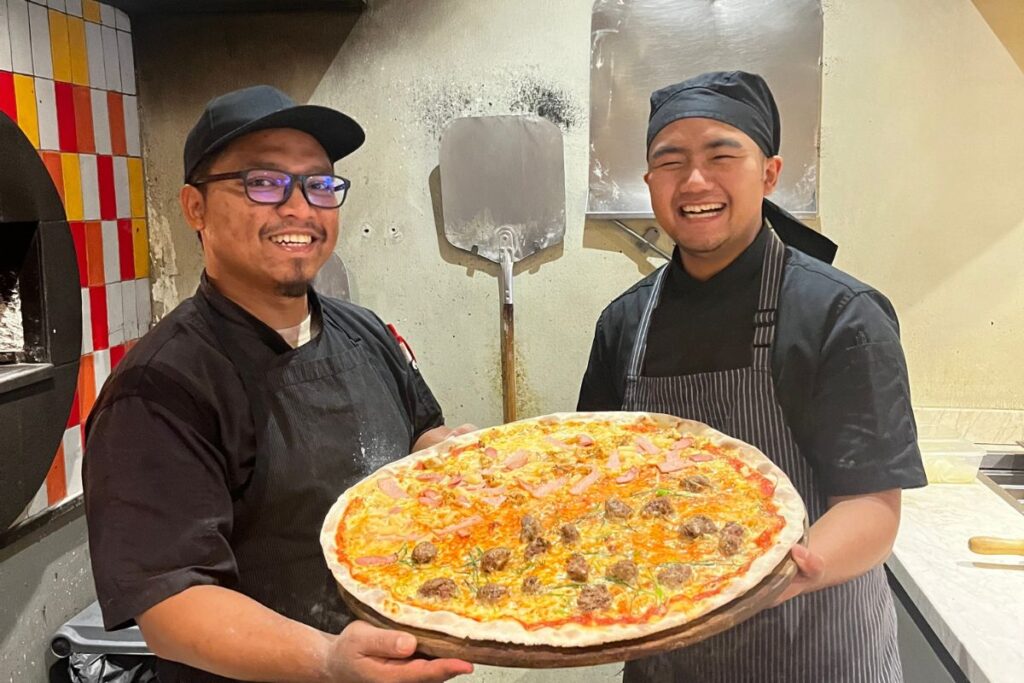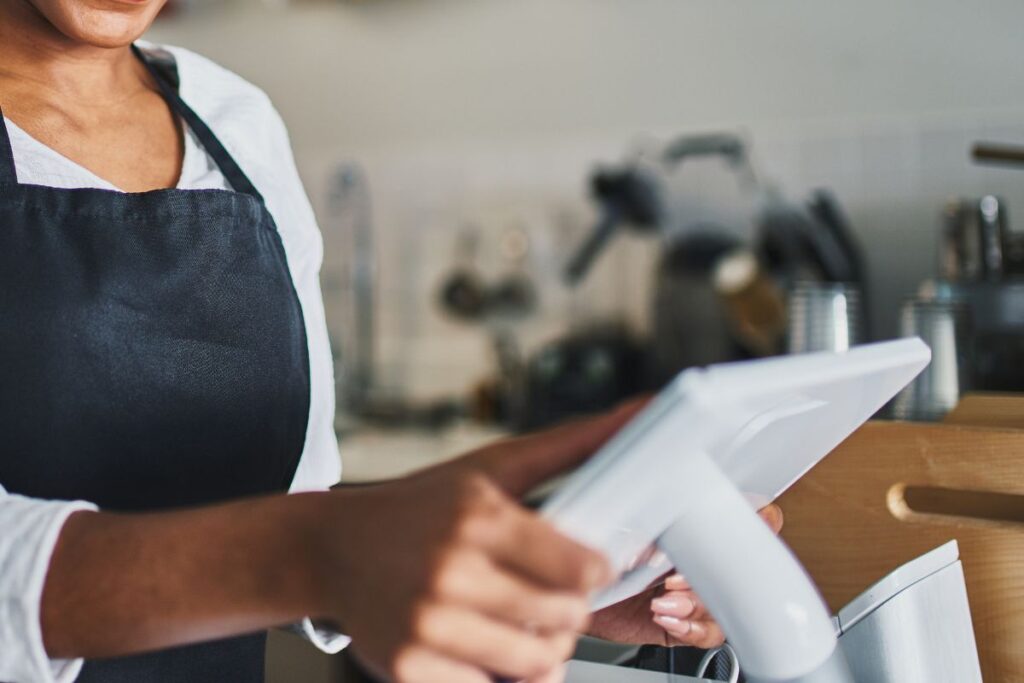Choosing the right point-of-sale (POS) system is one of the most important decisions for any restaurant or café. It impacts everything from how quickly orders are processed to how well inventory is tracked and staff is managed.
But with so many options available, how do you decide which POS system in Malaysia is the best fit?
Whether you’re opening a new café or upgrading your restaurant’s operations, this guide will walk you through the essential features, key considerations, and what to look for before making your investment.
What a POS System Does for Your Restaurant or Café
Over the past few years, POS systems have evolved from basic cash registers to powerful management tools for restaurants and cafés. They now play a crucial role in handling daily operations, tracking performance, and enhancing the customer experience, making them an essential part of any F&B business.
With features like real-time inventory tracking, employee shift management, detailed sales reporting, and built-in loyalty programmes, a modern point-of-sale system takes care of tedious manual tasks – automating stock updates, calculating sales, and managing customer transactions accurately.
This reduces the risk of human error, eliminates the hassle of manual data entry, and speeds up service by ensuring that every order, payment, and report is recorded instantly.
Key Factors to Consider When Choosing a POS System
1. Does It Support Your Restaurant or Café’s Workflow?

The way a café operates is completely different from how a restaurant functions. A fast-paced café needs a POS system that can process orders quickly, handle high customer turnover, and integrate with mobile payment solutions.
On the other hand, a full-service restaurant may require a POS system that supports customisable menus, split billing, and seamless coordination between the front-of-house and kitchen staff.
Before selecting a POS system in Malaysia, map out your daily operations:
- Would a Kitchen Display System (KDS) help improve order accuracy and speed up food preparation?
- Do you need a system that integrates with QR ordering, like StoreHub’s QR Order & Pay, which allows customers to scan a QR code, browse the menu, place their order, and pay—all from their phones? This helps reduce wait times and improve order accuracy, especially during peak hours.
A modern POS system should adapt to how your business runs—not force you to change your workflow. The right system will eliminate bottlenecks, enhance efficiency, and ensure smoother operations, whether you’re managing a small café or a full-service restaurant.
2. Is It Easy to Use and Train Your Staff On?
A good POS system should be easy to learn and require minimal training.
In the F&B industry, where staff turnover is high, a complicated system slows down operations and increases the risk of errors. Instead, a user-friendly interface ensures that employees can process orders, accept payments, and manage transactions easily even on their first day.
Beyond usability, a smart POS system also takes care of time-consuming tasks for you. It should automatically track staff attendance and performance, monitor stock levels in real time, and generate reports without the need for manual data entry.
Some systems, like StoreHub, include an integrated loyalty programme that allows restaurants and cafés to offer cashback, discounts, or tiered rewards – keeping customers engaged and boosting sales without adding to the staff’s workload.
3. Can It Manage Multiple Locations?

If you run more than one restaurant or café, managing each location separately can quickly become overwhelming.
More locations mean more staff to oversee, more inventory to track, and more sales data to analyse – all while ensuring consistency in quality, pricing, and customer experience. Without the right system in place, keeping everything in sync can turn into a logistical nightmare.
The ideal POS system should let you manage all operations from a single platform, giving you full control over multiple outlets without the hassle of switching between different tools or spreadsheets.
With a multi-location POS system, you can:
- Track sales performance across different branches in real-time
- Monitor and transfer inventory between locations to prevent overstocking or shortages
- Standardise menu pricing, promotions, and loyalty programmes across all outlets
- Manage staff scheduling, attendance, and performance remotely – even with just a snap of a photo
Having everything integrated into one system means you don’t have to manually check sales reports at each branch or rely on staff updates to make key business decisions.
Because you can keep an eye on stock levels, track revenue trends, and ensure that every location operates efficiently on just one platform – making it easier to grow your business without added stress.
4. Is It Cloud-Based?
In 2025, if your POS system isn’t cloud-based, you’re already missing out on features that make running a restaurant or café more manageable.
With a cloud-based POS system, you don’t have to be in-store to stay on top of sales, inventory, and staff performance.
Everything updates in real time, so you can monitor your business from anywhere—whether you’re at home or even travelling abroad.
Take Daniel Fleischer, owner of Flint Café & Roastery. While running his café in The Curve, Petaling Jaya, he also juggles a career in modelling and DJ-ing. Instead of being tied to the store 24/7, he can check sales, track best-selling items, and monitor performance straight from his phone – giving him the flexibility to focus on other passions while ensuring the café runs smoothly.
Without a cloud-based system, you’re left relying on outdated reports and in-person updates from staff – making it harder to catch issues early or make informed business decisions. But with instant access to key data, you can stay in control of your business no matter where you are.
5. What Is The Total Cost?

Investing in a POS system is a big decision, but focusing only on upfront costs can be misleading. A cheaper system might lack essential features like real-time sales tracking, inventory management, or cloud access, forcing you to pay for additional add-ons later.
Instead of looking for the lowest price, consider what you’re actually getting. A comprehensive POS system should cover everything from seamless transactions to automated reporting – helping your restaurant or café run smoothly without hidden fees.
When evaluating the total cost, factor in:
- Software subscription fees: monthly or annual pricing for system access.
- Hardware costs: tablets, receipt printers, and cash drawers.
- Setup and training fees: any extra charges for installation or onboarding.
- Add-ons and integrations: some POS systems charge extra for key features like loyalty programmes, QR ordering, or advanced analytics.
That’s why StoreHub offers an all-in-one POS system in Malaysia that includes everything you need – from real-time sales tracking and cloud access to automated customer engagement tools – without extra add-ons or hidden costs.
With transparent pricing and built-in features like QR Order & Pay and an integrated loyalty programme, StoreHub helps you reduce expenses, increase efficiency, and grow your F&B business with ease.
Final Thoughts
As the F&B industry evolves and your business grows, your POS system should keep up.
The right system helps you adapt to new challenges, improve operations, and maintain a great customer experience – all while giving you the tools to run a successful, scalable business.
Whether you’re managing a bustling café or a growing restaurant chain, having a system that simplifies daily tasks and provides real-time insights allows you to focus on what truly matters – serving great food and growing your brand.




